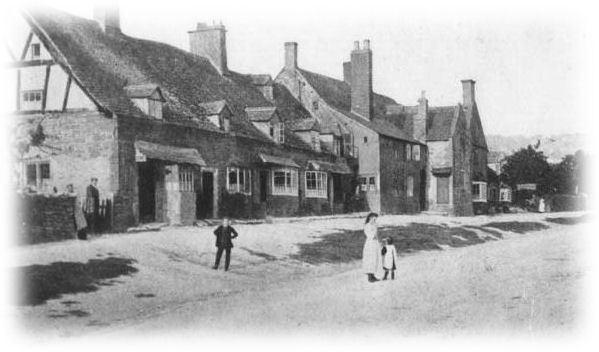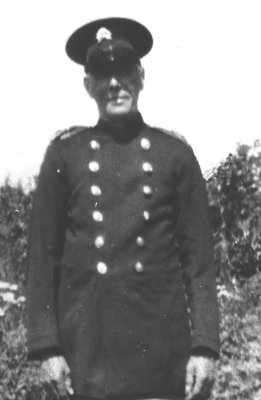|
Captains
and Crew
|
|||||||||||||||||
|
|||||||||||||||||
|
Following
Robert Cordell's resignation The Lighting Committee met, and unanimously
resolved to appoint John Jacques junior, another Parish Councillor,
to the post of captain. It is obvious that Mr Jacques had not been consulted
prior to this decision, as the following week the Committee met again,
when the chairman had to report that John Jacques did not wish to take
the job. They, therefore, agreed to rescind the previous resolution,
and to elect, Parish Councilor and newsagent, James Martin.
James Martin, an ex military man aged 45, was a Cornishman by birth but his wife, Sarah Ann, was a Broadway woman. He had been a sergeant in the Royal Artillery Regiment, and during the previous ten years had moved his family around the British Isles, presumably following his Regiment. They had lived in Weymouth, and had spent at least two years in Douglas, Ireland. James Martin accepted the position, and became Broadway Fire Brigade's new captain. During his time with the Brigade he appears to have been quite an enthusiastic captain, and submitted many written reports to keep the Committee informed of what was happening. However he seems to have been frustrated when, his requests for additional equipment to improve the efficiency of the Brigade were met with negative responses from the Council. In fact, that was the reason he gave when he finally tendered his resignation in December 1905, after four and a half years as captain. He wrote"....as the Council cannot see their way clear to provide the equipment which I have asked for and consider absolutely necessary for the efficient working of the brigade, I have no option but to resign". |
|||||||||||||||||
|
After
James Martin's resignation the Lighting committee looked for someone
to succeed him as captain. Breaking with their previous custom of electing
a member of the Parish Council, a number of the Brigade were interviewed
for the post. John Cotterell, who was a market gardener, and one of
the original 1895 volunteers, was eventually chosen, and was elected
as captain in February 1906. He seems to have been well liked, and was
described as being a sportsman, playing football for Broadway, and riding
to hounds. A member of The Worcester Yeomanry, he was also considered
the best shot with rifle or shot gun for miles around.
He remained as captain until August 1920, having completed twenty five years service with the brigade. As stated in an earlier chapter, for fifteen of those years he provided horses for hauling the engine. |
|||||||||||||||||
|
|||||||||||||||||
|
Charles
Steward was offered, and accepted, the job of captain. He served in
the post for just under two and a half years until September 1923, when
he submitted his resignation to the Parish Council. This followed a
meeting of Brigade members which was held at the fire station. At this
meeting Harold Keyte, an existing member, was elected captain, but five
members of the brigade in addition to Charles Steward expressed a wish
to resign. The reason for the mass resignation is not known, although
it appears there was no ill feeling, because Mr Steward offered to help
instruct any new members, and to assist at any fires which might occur
before they were fully trained. To quote from his letter to the Parish
Council, "These firemen [those resigning] and myself
are willing to help all the new firemen to learn their drill and put
them right in everything we know; and if a fire should occur I would
give them all the help I can."
Harold Keyte stayed in the post for only eight months until May 1924 before he too tendered his resignation. William Stanley, another of the firemen, seems to have then taken charge, but it is not clear whether he was officially promoted to captain. Two and a half years later, in September 1926, Charles Steward was re-appointed captain, a position he held for about fifteen years until the early part of the Second World War. |
|||||||||||||||||
|
*
Author's Note: In 2013 I was made aware that a pewter tankard exists,
which had been presented to Charles Steward. It bears the inscription,
'Presented to Charles Steward Esq. on his retirement from Broadway Fire
Brigade 1911 - 1943'. |
|||||||||||||||||

